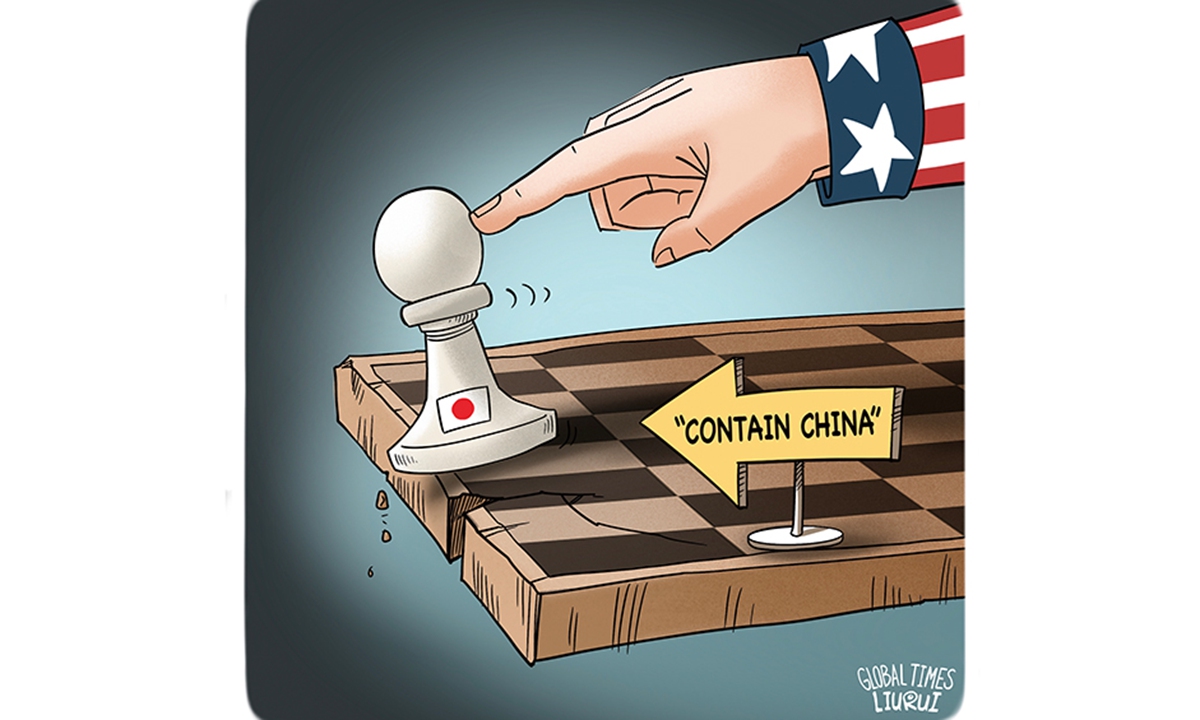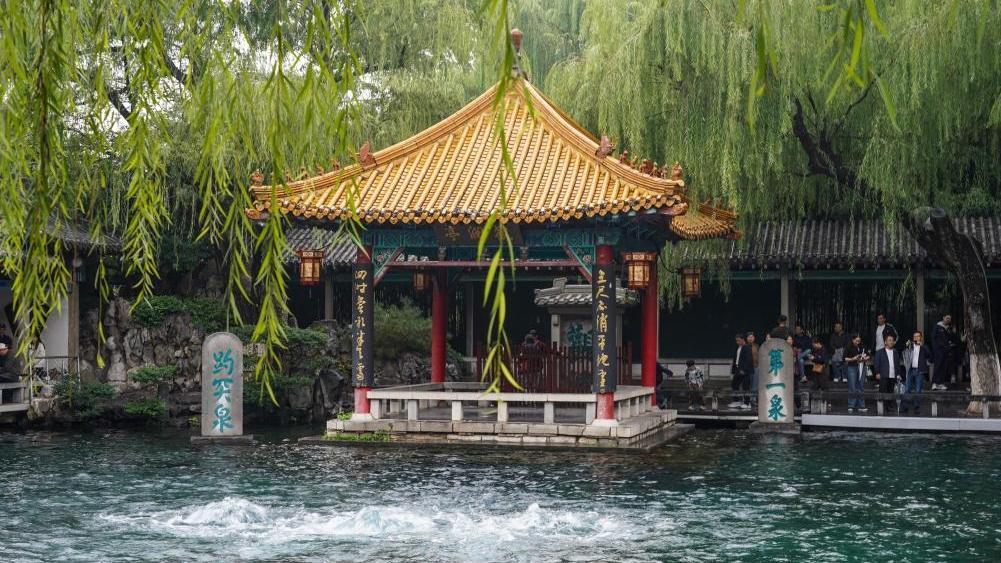US’ assignment of ‘tasks’ to Japan reveals its ‘forward containment’ strategy

Illustration: Liu Rui/GT
Even before Japan elected a new prime minister, the US sought to assign "tasks" to the East Asian country. In a speech on Monday, US Ambassador to Japan George Glass made various claims against China, and asserted that to elevate deterrence, the US and Japan need to share responsibilities in that task, NHK reported.
Glass' assertion once again reveals the essence of Washington's "forward containment" strategy in the Asia-Pacific - the US is doubling down on its attempt to further turn Japan into a frontline pawn against China, outsourcing its own strategic costs and transferring regional security risks to its allies. This approach not only undermines Japan's strategic autonomy but also heightens regional tensions.
"Such blunt claims from the US ambassador are not surprising," Lü Chao, president and associate professor at the Institute of American and East Asian Studies at Liaoning University, told the Global Times. According to Lü, with Sanae Takaichi taking office as Japan's new prime minister, Washington's move can be seen as a way to "warn" Tokyo - reminding Japan not to attempt to break free from US strategic control.
In fact, this "task-assigning" diplomacy is a continuation of the hierarchical postwar US-Japan relationship. For decades, Japan has remained militarily dependent on the US. Although Tokyo has repeatedly emphasized its strategic independence in the political sphere, the reality is that Washington still exerts considerable influence over Japan's military deployment, policy direction and defense spending.
Especially under the so-called "Indo-Pacific Strategy," the US-led "forward containment system," built upon alliances with Japan and South Korea, has become a key pillar of its hegemonic order in the region. Washington will not tolerate any sign of Japanese strategic autonomy, and under the banner of "strengthening the alliance," it will continue to integrate Japan into its anti-China framework.
Under the guise of "deterrence," the US encourages Japan to enhance its defense capabilities and even to erode the constraints of its pacifist constitution. The real casualty of such policies is the peace and stability of East Asia. This strategy not only weakens Japan's independent role in regional affairs but also fuels anxiety and defensive reactions among its neighbors, undermining the mutual trust that has taken decades to build. As the "deterrence" logic deepens, East Asia risks sliding into a high-tension confrontation structure - where the space for peace and cooperation continues to shrink, while the US profits from the rising instability to maintain its dominance in the region.
Glass also brought up the issue of rare earth cooperation, saying that Japan-US security "depends on the ability to procure rare earths and other critical minerals needed for advanced technologies." He further claimed that Japan could invest in US mining revival efforts through the bilateral tariff agreement - a thinly veiled call for Tokyo to shoulder the cost of Washington's reckless "de-coupling" agenda from China.
"Rare earth cooperation is an issue both Japan and the US have long wanted to address but cannot truly resolve," Lü said. "As a resource-poor country, Japan has no strategic advantage in this field. This kind of 'cooperation' is largely symbolic - more a form of mutual consolation than a real solution."
Japan faces the pressing challenge of defining its own path to genuine security and development amid a complex geopolitical environment. With sluggish economic growth, a rapidly aging society and mounting fiscal strain, Tokyo's policy options are increasingly constrained. If Japan continues to bind its security to the US while seeking to economically decouple from China, it will only deepen domestic contradictions and erode its autonomy. Strengthening an anti-China stance and pursuing military expansion won't bring real security.
The path that truly serves Japan's national interests lies not in being dragged into US-led geopolitical gambits, but in returning to a cooperative framework. Otherwise, Japan risks being marginalized from the broader trend of regional integration.
Photos
Related Stories
- White House begins demolishing part of East Wing to build Trump's ballroom
- U.S. local health officials urge vaccination, warn against misinformation
- LA mayor calls for Congressional investigation into U.S. federal agents' "unlawful" enforcement actions
- U.S. port association voices strong opposition to Washington's tariff policies
- Chinese vice premier holds video call with U.S. treasury secretary, trade representative on economic issues
- Ripple effects continue to spread as U.S. government shutdown lasts for half a month
Copyright © 2025 People's Daily Online. All Rights Reserved.









